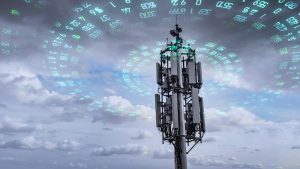Cheating Concerns and Learning Challenges: Why the NYC Department of Education Has Restricted ChatGpt in Public Schools

The new wave of Artificial intelligence has been spectacular, with apps like DALL.E and ChatGpt showing us what AI can do. However, the software comes with its challenges. Recently, the NYC department of education released a statement saying that ChatGpt will be restricted in schools in the jurisdiction.
According to Jenna Lyle, a spokesman at the education department, all public schools’ networks, and devices will restrict access to the app. This statement comes amid concerns about the effect of the tool on learning and threats of cheating.
Jenna says that despite the app’s ability to provide quick and easy-to-understand answers, the tool needs to enhance critical thinking and learning, which is important for students.
ChatGpt
ChatGpt is part of a new wave of Artificial Intelligence built by OpenAI that deploy natural language processing to understand and answer human queries. OpenAI has trained the model on a vast amount of text data and can provide information and engage in conversation on a wide range of topics.
Some of the things the app can do include answering questions, providing definitions and explanations, generating responses to prompts, and summarizing and synthesizing information. Many people have deployed the app in many ways, like debugging and writing code.
Unfortunately, the app cannot access the internet, which is deliberate, given what transpired with Microsoft Tay. Microsoft built Tay in 2016 and used Twitter as a platform for the bot. However, due to exposure to the internet and diverse personalities, the app quickly turned racist and vulgar before Microsoft had to shut it down.
ChatGpt creators promised they would be ready to admit when wrong and have implemented systems to ensure that the app does not generate harmful or offensive answers. According to The Associated Press news, OpenAI says that the engineers are working on systems to identify text generated by ChatGpt to prevent AI from misleading students in schools.
The Challenge of ChatGPT to Teachers and Students
According to SkyNews, teachers are worried that the bot is not as accurate enough and is misleading students in their growth process. According to teachers in the interview, students are among the most tech-savvy generation and can use the app to give near-textbook answers.
Jane Basnett, a director at a prominent school in Berkshire, says that it will be important for teachers to monitor the work and that the education sector has some decisions to make. Jane further iterates that her school is developing and upgrading plagiarism detector systems in tandem with the rapid growth of ChatGPT.
Positivity on ChatGPT
Jane also notes that technology is here to stay and that it is the mandate of the education sector to teach students how to use technology responsibly. She also notes that there is some positivity from the software. For example, teachers can use the app to create lesson plans and case studies for students in terms of essays that students can analyze.
According to Dr. Peter Van der Putten, a professor from the Netherlands, restricting technology in schools is a big mistake that will lead to enormous problems in the education sector worldwide. He believes that ChatGPT is like google on steroids and that students can use the app positively with the right guidance.




